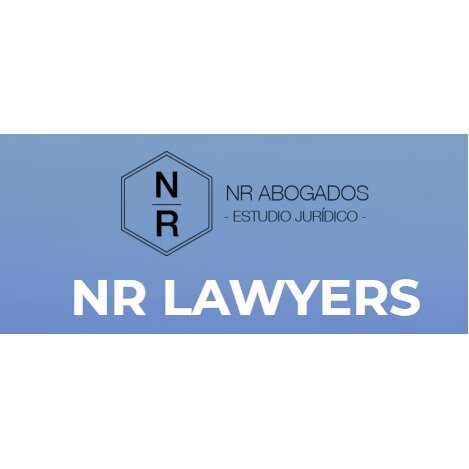Best Commercial Litigation Lawyers in Argentina
Share your needs with us, get contacted by law firms.
Free. Takes 2 min.
Or refine your search by selecting a city:
List of the best lawyers in Argentina
About Commercial Litigation Law in Argentina
Commercial litigation in Argentina involves resolving legal disputes that arise in the course of business and commercial transactions. This can include conflicts among businesses, between businesses and individuals, or with state agencies, usually concerning contracts, partnerships, insolvency, corporate matters, or other commercial obligations. The Argentine legal system provides a structured framework for dispute resolution, including pre-trial negotiations, mediation, and litigation before specialized commercial courts.
Why You May Need a Lawyer
There are many scenarios in which hiring a lawyer becomes essential in commercial litigation. Common situations include breach of contract, conflicts between business partners, shareholder disputes, disputes with suppliers or clients, issues involving intellectual property, unfair competition claims, debt recovery, or bankruptcy and insolvency proceedings. A commercial litigation lawyer provides essential legal guidance, helps assess the strength of your case, navigates complex legal procedures, represents your interests in negotiations or court, and can help you achieve the best possible outcome.
Local Laws Overview
Commercial litigation in Argentina is primarily governed by the Argentine Civil and Commercial Code, which came into force in 2015 to unify previous codes. Specific disputes may fall under additional legislation, such as the General Companies Law, the Bankruptcy Law, or sector-specific regulations. Argentine courts, especially in larger jurisdictions, have specialized commercial divisions.
Key aspects to consider include the procedural codes relevant to each province or federal jurisdiction, rules concerning enforceability of contracts, alternative dispute resolution mechanisms like mediation and arbitration, and strict legal time limits for initiating legal actions. The process often begins with mandatory pre-trial mediation in many types of disputes. Language requirements, documentary evidence, and local customs can also impact proceedings.
Frequently Asked Questions
What counts as a commercial dispute in Argentina?
A commercial dispute typically involves disagreements arising from business transactions, contracts between companies, payment defaults, partnership conflicts, joint ventures, franchise agreements, and intellectual property issues, among others.
Which courts handle commercial litigation?
Specialized Commercial Courts, mainly located in major cities like Buenos Aires, handle most cases. Provincial jurisdictions may also have commercial divisions or delegated judges for these matters.
Is alternative dispute resolution available?
Yes, mediation is often mandatory before resorting to court. Arbitration is also recognized and can be faster than traditional litigation, especially in complex commercial matters.
How long does a typical lawsuit take?
The duration depends on the complexity of the dispute, the court's workload, and whether parties are open to settlement. Cases can take anywhere from several months to a few years.
Can foreign companies sue or be sued in Argentina?
Yes, foreign companies can initiate or face lawsuits in Argentina, especially if the commercial activity or dispute is connected to Argentina or governed by Argentine law.
What evidence is needed in commercial litigation?
Documentary evidence, such as signed contracts, invoices, correspondence, and transaction records, is crucial. Witness testimony and expert reports may also be used.
Is it possible to recover legal costs?
The prevailing party may be entitled to reimbursement of court costs and reasonable attorney fees, but recovery is not always full and can vary by jurisdiction and case specifics.
What is the statute of limitations for commercial claims?
Most commercial claims in Argentina have a three-year statute of limitations, counted from when the aggrieved party could enforce their right. Some exceptions exist for certain types of actions.
Can contracts specify foreign law or arbitration?
Yes, parties are generally free to choose applicable law and the method of dispute resolution, including foreign arbitration, provided there is no violation of public policy.
What happens if the other party is insolvent?
If a debtor declares bankruptcy or is subject to insolvency proceedings, creditors must file their claims in the insolvency process, and their collection rights may be affected by the available assets and priority rules.
Additional Resources
- Argentine Judiciary (Poder Judicial de la Nación): National platform for court information and cases - Ministry of Justice and Human Rights (Ministerio de Justicia y Derechos Humanos): Provides access to procedural guidelines and mediation centers - Buenos Aires Commercial Mediation Center: Offers services for mandatory pre-trial mediation - Argentine Bar Association (Federación Argentina de Colegios de Abogados): Certifies and lists qualified commercial litigators - Organismos Judiciales Provinciales: Provincial judicial bodies offer localized guidance and procedures - Superintendency of Corporations (Inspección General de Justicia): Regulates commercial entities and can mediate certain business matters
Next Steps
If you are involved in a commercial dispute or believe you may face one, you should begin by gathering all relevant documents and evidence, including contracts, emails, and financial statements. Consider seeking early legal advice from a lawyer experienced in commercial litigation. They can evaluate your situation, advise on the best course of action, and help you comply with mandatory procedures such as mediation. Act promptly, as delays could affect your legal position due to statutes of limitations. Research lawyers or law firms with expertise in Argentine commercial law, and contact your local bar association if you need referrals.
Lawzana helps you find the best lawyers and law firms in Argentina through a curated and pre-screened list of qualified legal professionals. Our platform offers rankings and detailed profiles of attorneys and law firms, allowing you to compare based on practice areas, including Commercial Litigation, experience, and client feedback.
Each profile includes a description of the firm's areas of practice, client reviews, team members and partners, year of establishment, spoken languages, office locations, contact information, social media presence, and any published articles or resources. Most firms on our platform speak English and are experienced in both local and international legal matters.
Get a quote from top-rated law firms in Argentina — quickly, securely, and without unnecessary hassle.
Disclaimer:
The information provided on this page is for general informational purposes only and does not constitute legal advice. While we strive to ensure the accuracy and relevance of the content, legal information may change over time, and interpretations of the law can vary. You should always consult with a qualified legal professional for advice specific to your situation.
We disclaim all liability for actions taken or not taken based on the content of this page. If you believe any information is incorrect or outdated, please contact us, and we will review and update it where appropriate.
Browse commercial litigation law firms by city in Argentina
Refine your search by selecting a city.















